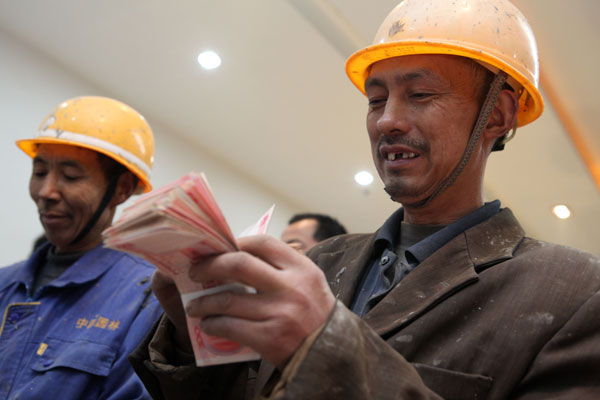Flexible minimum wage meets needs of times
(China Daily) Updated: 2016-08-25 07:21
 |
|
Migrant workers receive their pay at a construction site in Dazu district, Chongqing, on Dec 26, 2013. [Photo/China Daily] |
The State Council, China's Cabinet, pledged to be more flexible when increasing the minimum wage in a work plan issued on Monday. Beijing Times commented on Wednesday:
The easing of the minimum wage system, which aims to strike a balance between the interests of employers and employees, is a response to the country's lackluster economic growth, which remained at 6.7 percent in the second quarter, the lowest growth rate since the 2009 global financial crisis.
In the current economic circumstances, many enterprises are struggling with an increasingly heavy financial burden. It is necessary to adjust the rises in the minimum wage to ease the pressure on them.
However, the minimum wage is designed to protect employees' legal rights and interests. They are always in a relatively disadvantaged position when it comes to wages. The minimum wage was introduced as a bottom line employers are not to cross.
However, some employers are experiencing difficulties in guaranteeing the minimum wage, given the increasing costs and shrinking profits they face. If the minimum wage continually rises, it will put even more pressure on them and they may resort to laying off their workers or defaulting on their wages.
In either case, employees will be worse off than if increases in the minimum wages are slowed down. An adjustment to the minimum wage system will therefore benefit both employers and employees.
Companies should make the most of their reduced costs to pursue growth while ensuring their employees are properly paid.












